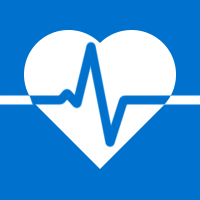
UK Mini Mitral Overview
Trial Overview
Heart surgery to repair one of the valves in the heart (the mitral valve) is commonly performed in the NHS. Patients needing this operation sometimes suffer symptoms of shortness of breath (especially when exercising), tiredness, and swollen ankles, caused by the valve becoming leaky (mitral regurgitation). Some patients suffer very few symptoms.
These patients are quite often of working age so time away from their place of work can be difficult for a number of reasons. We need to make sure that the operations offered within the NHS are best for patients.
The Operation
To repair the valve, the operation usually involves cutting the breastbone completely (from the collar bone to the bottom of the breastbone); this is called a sternotomy. An operation has been developed which means that the valve can be repaired using a much smaller cut on the side of the chest; this operation is called a mini-thoracotomy. The trouble is, we don’t know which operation is better for patients and for the NHS because there is no good research to show what effects two different types of surgery to access the heart and repair the valve have on patients.
We have spoken to heart doctors and heart surgeons in the UK and the USA as well as to patients who have had each of these types of surgery, and to patients waiting for surgery. They all think it is important that we know which operation enables patients to return to normal activities sooner after the operation on their mitral valve.
What Happens to me?
This study will compare the two operations in four hundred adult patients, to see how well they recover and return to normal activities. The trial will include patients at NHS hospitals across England and Scotland. Patients will be randomised (allocated) to undergo one of the operations. The trial is large enough to show which operation is better for patients and the NHS.
Over
150
Patients Already Recruited
We will ask patients who take part questions about their physical activities and quality of life before and after their operation. We will also check other important factors to see how well patients recover, including how well their valve works up to twelve weeks and twelve months after surgery using a heart scan (called an echocardiogram).
We will ask patients to wear a device that measures their activity for one week on seven occasions; the device looks like a wrist-watch and can be worn all day and all night.
Any complications following a patient’s operation will be recorded from their medical records. We will also calculate the costs of care for each operation by looking at medical records to see how often patients are seen in hospital after their operation.
Patients who take part will attend hospital a few times in the first year, after this we will continue to check their progress by reviewing their medical notes. We will ask patients to confirm that they are happy that we keep looking at their medical records, even after the trial is finished.
Your Recovery

Hospital Appointments
There are 2 hospital appointments, both are for heart scans. The first can be any time up to 12 weeks after your operation. The second a year after your surgery. Click to see a full timeline.
Learn more about your recovery in the FAQ's
(First appointment anytime in the first 12 weeks.)





